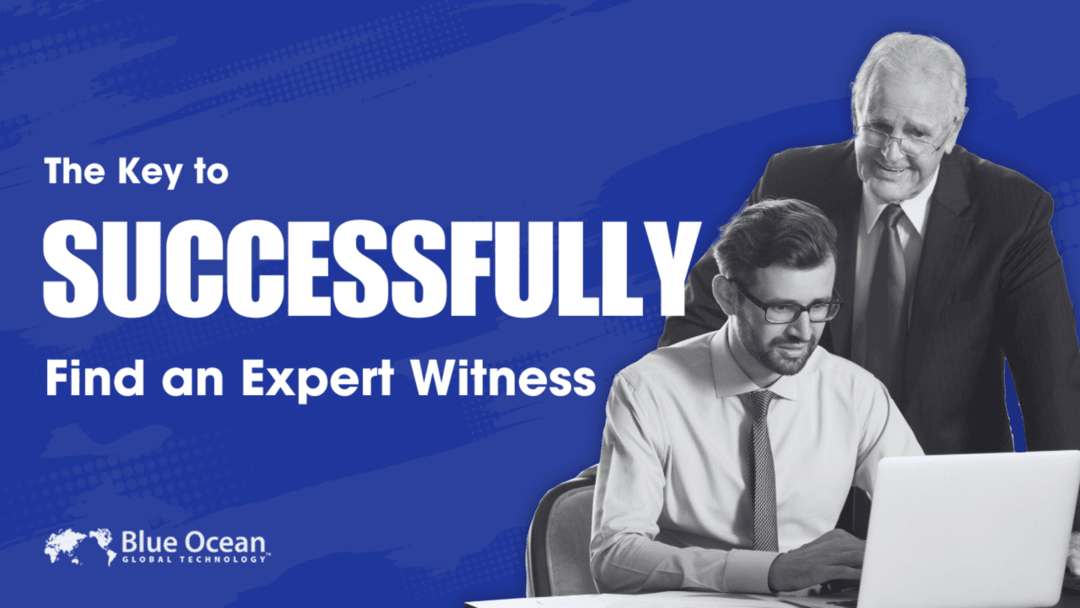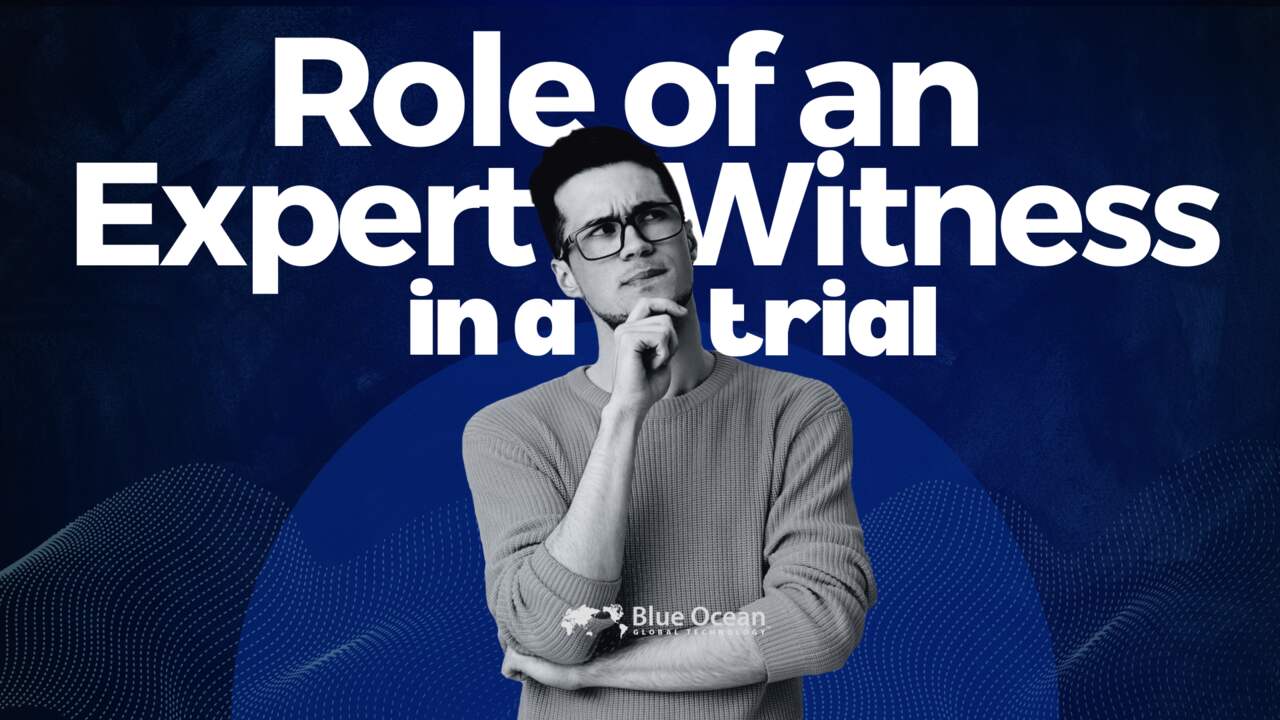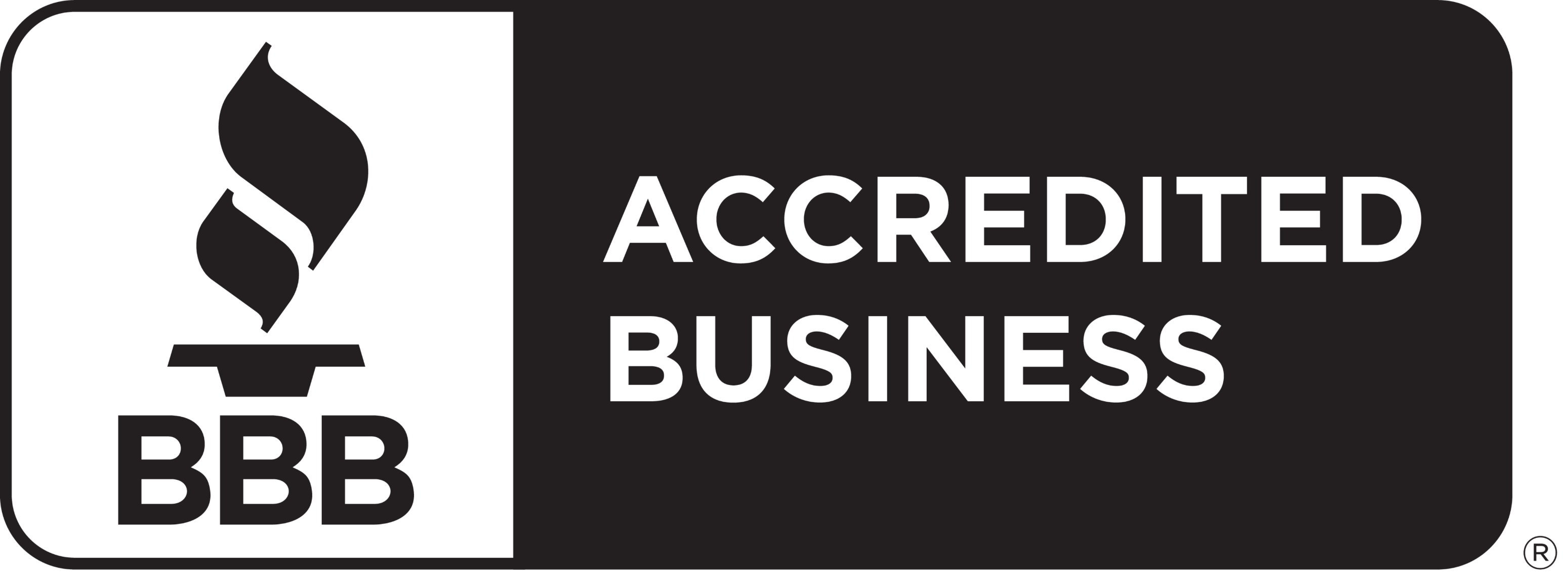Expert witnesses are individuals who have specializations to their name so that they can impart expert opinions in legal cases. Witnesses are used in approximately 86% of civil trials, which provides positive outcomes to legal cases. It is important to get the right expert witness services, as their testimony comes in handy. Attorneys and legal teams must carefully vet potential experts so that they hire someone who is credible. Apart from their reliability, they must align with the case needs. A well-qualified expert witness can clarify complex matters across all domains. Whether it is technical, medical, financial, or scientific issues, they are considered as an indispensable part of legal proceedings.
What is an Expert Witness?
An expert witness assists courts in figuring out complex issues by giving accurate and distinct perspectives in their chosen area of expertise. As opposed to lay witnesses, their testimony is not based on direct observation but rather on proficiency, experience, or training. If they are going to establish facts in a case, these specialists must be able to analyse the evidence, express opinions, and provide explanations.
An expert witness must meet a few conditions and show that the evidence they provide was based on sound principles in order to be accepted into the courtroom. Legal systems consider their background and professional qualifications, so that their opinions can be made use of in court.
What is the Difference Between an Expert Witness and a Lay Witness?
The nature of expert witnesses’ testimony varies from that of lay witnesses.
- Expert Witness: Any individual who satisfies the requirements of Federal Rule of Evidence 702 is entitled to provide opinions based on their knowledge. Their testimonies are used to interpret the facts, clarify industry norms, and provide evidence-based insights that back up or contradict assertions.
- Lay Witness: Federal Rule of Evidence 701 states that lay witnesses are only permitted to testify based on their firsthand observations of the events. They aren’t allowed to offer opinions that call for particular expertise contrary to expert witnesses.
Expert witness admissibility was set in Daubert v. Merrell Dow Pharmaceuticals, Inc. (1993). The case established that expert witness testimony must be supported by scientific principles, influencing how courts evaluate expert witnesses today.
What is the importance of an expert witness in court cases?
Because they shed light on disputable technical issues, expert witnesses play a vital role in determining the final result of cases. In civil as well as criminal cases, their analysis often affects verdicts, assures credibility, and strengthens arguments. Among their principal contributions are:
- Clarifying Complex Issues: A lot of court cases deal with extremely technical topics that a jury or judge may not fully understand. Expert witnesses make these issues easier to understand.
- Providing Objective Analysis: Expert witnesses, in contrast to lawyers, are supposed to maintain objectivity and provide opinions that are based on facts.
- Strengthening Legal Arguments: In a case involving the proof of liability, damages, or causation, expert testimony that is presented well can make a big difference.
- Influencing Jury Decisions: Since juries depend on expert testimony to reach well-informed results, expert testimony often holds a lot of weight.
What are the Types of Expert Witnesses?
Expert witnesses are of different kinds, each with a distinct area of expertise that they bring to court proceedings.
Medical Experts
These comprise professionals who provide testimony regarding medical negligence, injuries, and mental health issues. They could be from forensics or surgeons. They look into causes of death. In criminal cases, assessments from psychologists and medical opinions of such experts can be very important.
Financial and Economic Experts
The fraudulent cases are looked into by economic analysts and valuation specialists, along with forensic accountants. They study business losses and financial records. They frequently provide evidence in cases involving financial fraud.
Source: Freepik
Technical and engineering experts
Such experts give opinions on mechanical failures, construction flaws, workplace safety breaches, and product design issues. They offer testimony when it is related to construction, intellectual property, and accident investigations.
Scientific Experts
In order to examine contamination issues, experts in biology, chemistry, toxicology, and environmental science are brought in. Their knowledge is put to use in criminal investigations, as they can offer forensic help. They also help with product liability cases and environmental law.
Digital Forensics and Cybersecurity Experts
These professionals look into cybercrimes and examine digital evidence. They also verify electronic documents and assess cybersecurity risks. Their knowledge is of great use in investigations into digital fraud, intellectual property theft, and data breaches.
Where to Search for Expert Witnesses
To find the most qualified experts for their cases, lawyers may carry out an expert search using a number of trustworthy resources:
- Professional Directories and Associations: Reputable experts are listed in directories provided by organizations.
- Law Firm Referrals: To ensure credibility and dependability, lawyers can suggest dependable specialists they have collaborated with in past cases.
- Universities & Academic Institutions: Scholars and researchers with expertise can provide opinions as expert witnesses in their fields.
- Online Expert Witness Databases: Online databases of vetted experts from a variety of fields are kept up to date by various platforms.
- Private Consulting Firms: Businesses that specialize in expert witness placement, such as Blue Ocean Global Technologies, help match lawyers with reliable experts who are appropriate for particular cases. They offer the best fit for complex legal issues.
Source: Freepik
How Can Attorneys Choose the Right Expert Witness?
Attorneys need to be cautious when they are choosing an expert witness. There must be careful evaluation as the witness needs to be credible in court. The following elements should be taken into account by attorneys:
- Relevant Expertise: The expert’s experience must directly relate to the case’s topic.
- Experience & Credentials: Prior testimony experience must be considered, along with professional certifications and academic credentials.
- Courtroom Presence: An expert must be able to resist cross-examination and speak clearly.
- Reputation and Prior Testimony: Earlier court appearances must be examined to see if the witness’s testimony has been contested or excluded.
- Impartiality and Objectivity: A reliable expert needs to be impartial and free from conflicts of interest.
Enhance Your Case’s Credibility With Our Expert Witness Testimony
Request a quote for our services today.
What are the Common Challenges in Finding an Expert Witness?
The process of finding an expert witness is fraught with challenges. These are as follows:
- Limited Availability of Top Experts: Due to their hectic schedules, highly specialized experts may not always be available to prepare for trials or testify.
- Legal Admissibility Issues: Experts’ methods may be closely examined by courts, so lawyers must make sure their testimony satisfies Daubert or Frye standards.
- High Costs and Budget Constraints: Expert witnesses frequently demand hefty fees, which makes budget constraints difficult.
- Bias and Credibility Concerns: It’s critical to confirm that the expert has no past connections that might compromise their objectivity.
- Opposition Challenges and Cross-examination Risks: Despite having a wealth of information, some experts may not be able to effectively communicate it to a jury.
Source: Freepik
What are the Costs and Fees of Expert Witnesses?
Depending on experience, reputation, and case complexity, expert witness hourly rates can vary significantly. The following are some important cost factors:
- Consultation fees include case assessments and initial meetings.
- For research, depositions, and courtroom testimony, experts frequently bill by the hour.
- In order to reserve their services, many professionals demand payment or a retainer fee in advance.
- Costs associated with travel and lodging to attend court proceedings.
- Fees for appearing in depositions and trials or deposition and testimony fees.
When planning their budget for a case, lawyers need to account for these expenses and make sure that the impact on the legal strategy justifies the investment in an expert witness.
Conclusion
Given the myriad complexities of legal proceedings, the task to find an expert witness stands out as a crucial piece to assemble. An unbiased, credible expert witness can sway outcomes in favor of attorneys and clients. Given their value in and out of court, the pursuit of the right expert witness deserves constant attention.Expert selection is the most important part of any legal strategy. Determining how to find an expert witness is the first step in any case. A well-chosen expert can make the difference between winning and losing a case. Attorneys can make sure they locate the best expert by utilizing directories, referrals, and expert witness databases. Developing a solid and convincing case depends on the ability of the expert witness, regardless of the case’s focus.
Frequently Asked Questions
What qualifications should an expert witness have?
To build credibility in court, an expert witness must have the necessary education, professional certifications, relevant experience in their field, and an established record of research or case involvement.
How do courts determine if an expert witness is credible?
Courts assess expert witness credibility based on Federal Rule of Evidence 702. According to this rule, their testimony is based on reliable principles and sufficient data. Experts with specialized knowledge will assist the judge or jury.
What is the average cost of hiring an expert witness?
Expert witnesses usually charge per hour, with additional fees for testimony, depositions, and case preparation. The cost varies based on experience and the complexity of the case.
Is it possible for a court to cross-examine an expert witness?
Yes, a court can cross-examine an expert witness. This is done to assess the credibility and objectivity of their testimony. Their credentials, methods, and viewpoints might be questioned.
Don’t Navigate the Complexities of Your Case Alone
Reach out to us for a free case assessment and expert witness guidance to ensure success.

















Comments are closed.